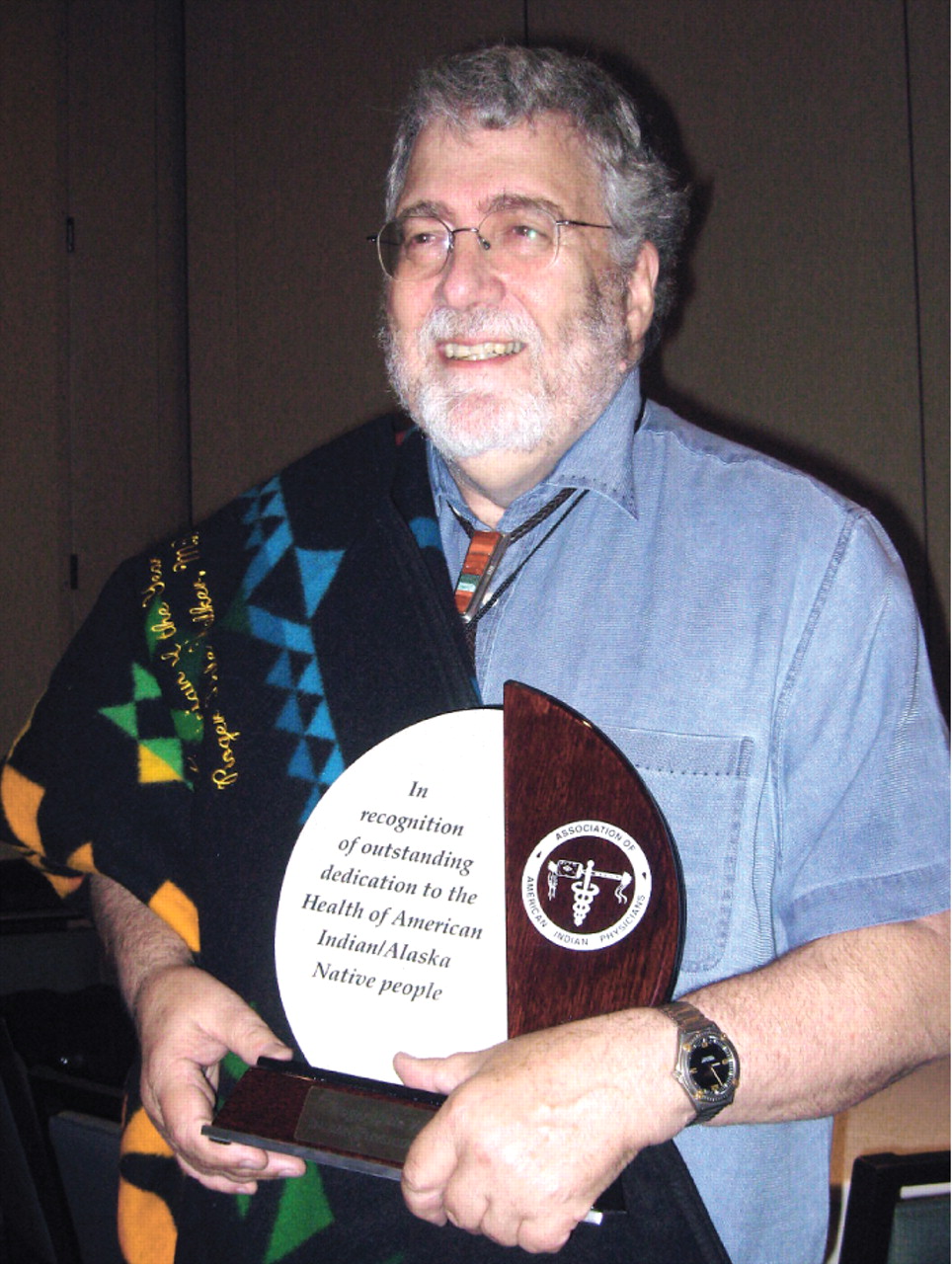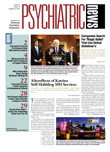A psychiatrist working within a community must understand its history, just as one who works with a single patient understands what brought that person into the office, said Roger Dale Walker, M.D., a professor of psychiatry and of public health and preventive medicine at Oregon Health and Science University in Portland.
Walker is a health services researcher and a clinician who specializes in substance abuse issues. He also directs the One Sky Center, a national resource for programs that have helped American-Indian and Alaska-Native communities prevent and treat substance abuse and other mental health problems.
“You need to understand the background and history and why the community is the way it is,” he told Psychiatric News.“ We have to be thorough and careful to establish trust and confidence in offering help, just as we are when treating an individual.”
Decades of work at that intersection of communities and individuals led to Walker's recognition in July as American Indian Physician of the Year by the Association of American Indian Physicians at its annual meeting in Arlington, Va. Walker, a Cherokee, received the same award 20 years ago.
“It's humbling to be selected again,” he said. “I'm honored to be recognized by my peers for our ongoing work.”
“Walker has really helped bring attention to the mental health and substance abuse needs of American Indians and Native Alaskans, so that people today are fully cognizant of that need,” said Daniel Dickerson, D.O., M.P.H., an assistant research psychiatrist in the UCLA Integrated Substance Abuse Programs at the Semel Institute for Neuroscience and Human Behavior of the David Geffen School of Medicine in Los Angeles. Dickerson is a former chair of APA's Committee of American Indian, Alaska Native, and Native Hawaiian Psychiatrists and has known Walker for eight years.
Within APA, Walker has chaired the Council on Advocacy and Government Relations and the Committee of American Indian, Alaska Native, and Native Hawaiian Psychiatrists, as well as the Strategic Planning Committee in the mid-1990s. He served as speaker of the APA Assembly for the 1996-1997 term.
The One Sky Center began six years ago with funding from the Substance Abuse and Mental Health Services Administration to serve as an advocate as well as a therapist for communities, said Walker.
“Funding for all underserved communities is fragmented,” he said. “Our job is to help them manage the process of integrating and allocating those funds.”
When one of those 562 groups asks Walker for help, he doesn't just hand out an off-the-shelf formula.
“A lot of preparation goes into a visit to a community,” he said, speaking from 30 years' experience.
He tells his students to think of the community as the patient. Just as a physician must integrate the functions and failings of different parts of the body, a healer approaching a community must know the economic, educational, legal, and health care dimensions that influence the course of its illness.
Because tribes are independent, sovereign entities under U.S. law, he begins his discussions with the “ambassadors” from the tribe, knowledgeable members who provide him with an introduction to others within the group.
“Doing the background work brings you status and trust,” he said. “They know you respect them.”
One Sky staff members visit up to 50 tribal communities a year, following their careful preparation with an intensive two-day stay that sets the stage for further development of specific plans and still more follow-up.
“When we meet with a community, we don't leave,” he said.“ They become a part of One Sky and we maintain contact over time.”
The center's Web site includes a searchable database on 134 programs that have been tried by tribal groups around the country.
Walker helps other American Indians and Alaska Natives in another way, too. Over the years, he and his wife, Patricia Silk Walker, Ph.D., M.S.N., a nurse epidemiologist, have helped mentor more than 50 young American-Indian scientists on their way to earning a Ph.D., M.D., or master's degree.
Walker took Dickerson under his wing when Dickerson was still a medical student. He guided Dickerson first toward psychiatry and, once he was in residency at Loma Linda University Medical Center, urged him to consider addiction psychiatry as his specialty. As a result, Dickerson completed an addiction fellowship in psychiatry and research at Yale. Today, Walker and Dickerson are believed to be the only two certified American-Indian addiction specialists in psychiatry, according to Dickerson.
Dickerson returned the favor by mentoring undergraduates and residents. Next year, he will become a mentor for a young researcher.
Expanding that effort has been limited by the lack of a critical mass of American-Indian scientists and health care educators at any one university. In response, the National Institute on Drug Abuse granted Walker funds to set up a national mentor system for American-Indian, Alaska-Native, and Native-Hawaiian addiction researchers, which now includes eight mentors and an equal number of protégés.
“We're picking people with a high likelihood of success and helping them through the sticky patches of graduate school and early career development,” said Walker. Workshops in grant writing and scientific paper writing have been held or are planned, for example.
Walker's own research path has combined two parallel tracks: substance abuse among American Indians and general health services and treatment research. He began by looking at vulnerabilities of American Indians to alcohol disorders and to prevention and treatment strategies that worked. He has led one long-term study of 11- to 12-year-old children and their mothers to document how drug or alcohol abuse arises.
“Dale has helped to engage communities in research and bring a community-based, culturally relevant approach to research,” said Dickerson.
Being named physician of the year is just another chapter in a career dedicated to helping American Indians. “The award will just motivate me to keep going,” he said.
Information about One Sky Center is posted at<www.oneskycenter.org/>.▪

